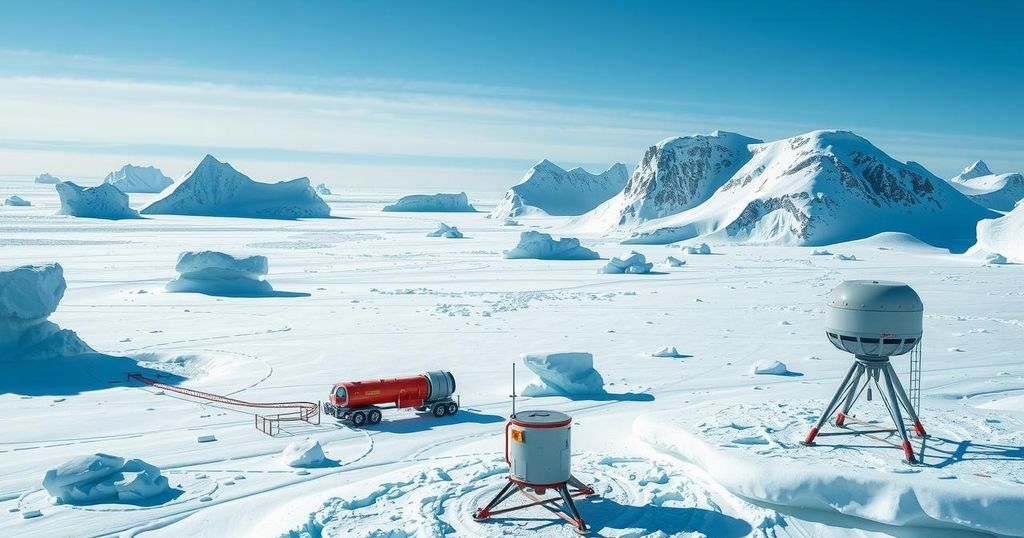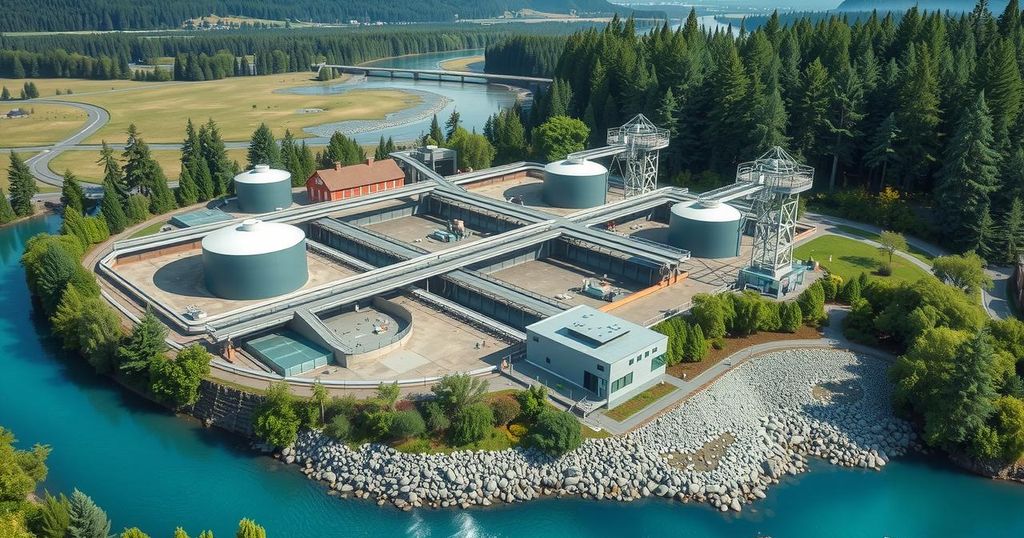In March 2025, a report of violence shook South Africa’s Sanae IV Antarctic research base. David William Hedding explained that researchers focus on climate change due to Antarctica’s unique and fragile environment. Approximately 30 countries conduct research there, and notable findings include the ozone hole discovery and ice core climate reconstructions. Research conditions are harsh, but understanding Antarctica’s role is crucial for global climate resilience.
In mid-March 2025, a significant media incident arose involving a researcher at South Africa’s remote Sanae IV base in Antarctica, who alleged that a team member had exhibited violent behavior. To shed light on the research conducted in Antarctica, The Conversation Africa consulted geomorphologist David William Hedding, an experienced researcher from the icy continent.
Researchers in Antarctica predominantly focus on climate change, leveraging the continent’s pristine and delicate environment as a critical indicator of global climate shifts. Antarctic conditions, which are extreme and largely unaltered by human activity, provide an unparalleled opportunity to study natural systems and their responses to environmental fluctuations. In addition, unique scientific inquiries, such as space weather, are pursued here, as the Antarctic location is particularly conducive to observing phenomena related to solar activity and its effects on Earth’s magnetic field.
Currently, research efforts in Antarctica are conducted by approximately 30 countries, though their bases cater to a broader scientific community. Collaboration is essential due to the remote nature of many study sites, logistical challenges, and limited resources. The South African SANAE IV base, situated about 220 kilometers from the ice-shelf on a nunatak in Western Dronning Maud Land, generally hosts 10 to 12 researchers and personnel who endure around 15 months of harsh conditions, including the winter darkness.
Notable discoveries from Antarctic research include the identification of the ozone hole in 1985 by the British Antarctic Survey, leading to the Montreal Protocol’s establishment. Another crucial finding involves studying ice cores to reconstruct climate history, offering insights into atmospheric conditions from the past 1.2 million years. Understanding these climatic responses is vital for anticipating future changes amid ongoing anthropogenic climate challenges.
Conducting scientific research in Antarctica presents formidable challenges due to its remoteness, frigid temperatures, and continuous daylight during summer. Logistical issues often arise from accessing remote locations. Researchers from the University of Johannesburg, for instance, may spend weeks collecting samples in the field, navigating vast distances on snowmobiles while remaining self-sufficient in austere conditions. Research is primarily conducted during the austral summer months, since temperatures can be more conducive to work during this period, despite the limited operational window due to sea ice conditions.
Scientific endeavors in Antarctica are essential due to the region’s significant influence on global systems. Climate change is expected to accelerate the melting of land-based ice, potentially contributing to sea-level rise and altering oceanic currents. Thus, understanding the responses of Antarctic terrestrial ecosystems to such changes is crucial, as these alterations in ocean currents will profoundly affect global marine food webs. Addressing the implications of sea-level rise is vital for societal resilience and adaptation to climate change.
The research conducted in Antarctica is critical for understanding climate change and its impacts on global systems. With the continent serving as a bellwether for climate shifts, the work of international teams is vital for predicting future environmental changes. As such, ongoing investigation into Antarctic conditions will inform strategies to address and adapt to the rising threats posed by climate change, particularly regarding sea-level rise and oceanic disruptions.
Original Source: allafrica.com




